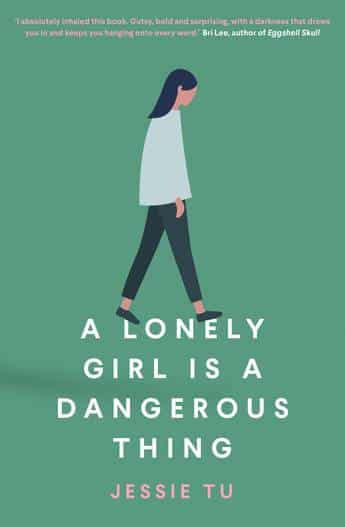This debut novel by Jessie Tu is the interior account of our protagonist Jena Lin, a child prodigy who had a break down as she hit puberty and has since been stuck in a limbo of destructive relationships, hurting her friends and seeking attention in dangerous sexual encounters. At 22 she is single and living in an inner-city Sydney share house with other creatives. Her Taiwanese family is in the outer suburbs, and at arms length.
You could say the ‘Venn Diagram’ of the book is comprised of one part music (this is an excellent mode of the storytelling with the compositions referenced providing beautiful metaphorical parallels with our protagonist’s life experiences) one part friendship and one part sex; with her pursuit to be desired, which can be read as loneliness, the commonality in the middle.

Jena wants the mantel of best regarded soloist, a devoted female friendship like in the film ‘Frances Ha’, and a fulfilling sex life; but her desire is often mismatched with her behaviour that includes ignoring musical mentors, not respecting friends and choosing a lover who is often derogatory and objectifying.
‘A Lonely Girl is a Dangerous Thing’ is a meditation on race, but also a huge focus is the dynamic between sex, power and loneliness.
Feminist ideas are present in the book but ties to the patriarchy aren’t severed in a way that feels like resolution, aware of but not fighting the forces. For example, we see complex female friendships (but not all pass the Bechdel test), the central character and her contemporaries make reference to gender inequality in their artistic careers and role men play in their success but engage with the hierarchy, and more generally the bad behaviour of men around her in relationships is enabled. Despite seeming like a free agent, doing who she wants, when and how she wants; the framework is one predetermined and at the behest of men.
Jena is aware of the game she plays, noting ‘I’d always known that desiring is harder than being desirable.’
The relationship between Jena and her Mother is an interesting slow burn, she sees her as a parent rather than person looking for connection and the protagonist misses the commonalities between them. As her Mother says later ‘To be lonely is to want too much. And that’s fine. But it doesn’t mean you should let people hurt you.’ This insightful statement can be applied to all the characters, and of course all readers.
While we don’t always love Jena’s choices, she acts with autonomy. She’s arguably an unlikeable central character, which is a subversive choice, a spin on the ‘usual’ depiction of Asian women in the media. As Jena wonders despondently late in the book, after affirmations of winning new jobs and prizes, ‘What is the point of being any kind of artist if your skin colour or gender excludes you from the choices of old white men, just because you don’t look like them and they don’t see themselves in you?’
Our author Jessie Tu does an excellent job of creating a space where we can see that her artistry and that of her central character is unapologetic.
The novel offers another perspective to what it could be like as a young single Asian woman in Australia who defies expectation and carves her own path.